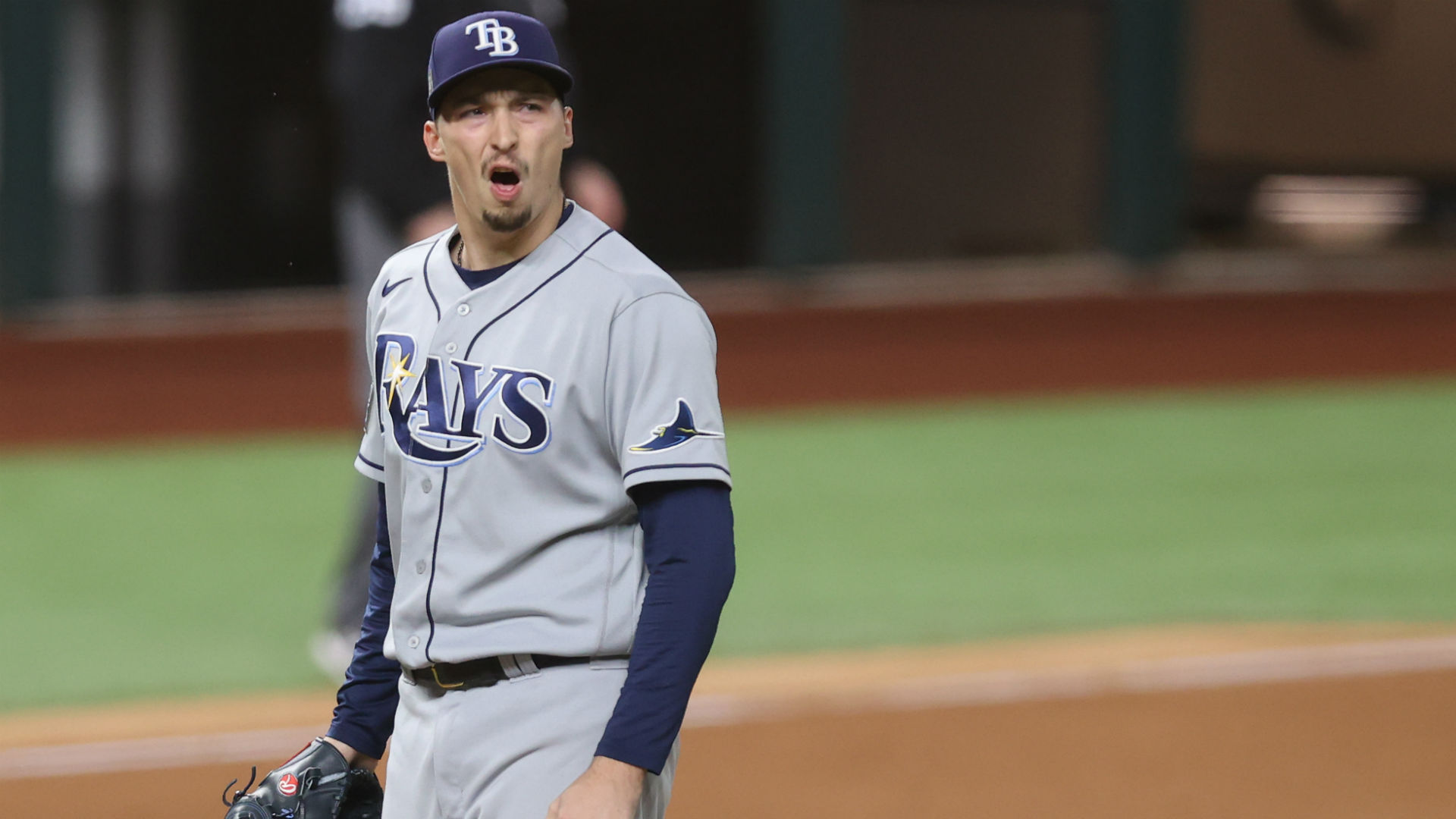[ad_1]

The Rays and Padres on Sunday wrapped up their third trade in a little over a year, and this one tops the first two by a lot. San Diego is acquiring left-hander Blake Snell for a package of prospects and young major leaguers led by right-hander Luis Patiño, according to multiple reports.
Patiño is headed to Tampa Bay along with catcher Francisco Mejía, pitching prospect Cole Wilcox and catching prospect Blake Hunt. Jeff Passan of ESPN and Dennis Lin, Josh Tolentino and Ken Rosenthal of The Athletic were first to report details of the trade.
The teams that brought us such previous swaps as Tommy Pham-for-Hunter Renfroe (plus a certain minor leaguer Snell disparaged with a crude adjective) and Emilio Pagán for Manuel Margot have moved on to providing the biggest trade of the 2020-21 MLB offseason.
Sporting News offers instant grades for the reported swap.
Padres: A
What other grade can San Diego get? The second-best team in the NL West is acquiring a 28-year-old ace with a Cy Young award in his CV; not only that, it’s getting three years of control over said ace at a low, low cost (in baseball terms): $13 million per year. San Diego will gladly take on the remainder of the five-year, $50 million extension Tampa Bay gave Snell prior to the 2019 season.
Snell didn’t get to throw a lot of innings in 2020 (regular or postseason, as we all saw in the World Series), but when he was on the mound, he was mostly good. He posted a 3.24 ERA in 11 starts (but just 50 innings as Tampa Bay handled him gingerly), although a 4.35 FIP might raise eyebrows. He averaged 11.3 strikeouts and 3.5 walks per nine innings but also served up 10 home runs.
His postseason work was better. In 29 2/3 innings over six starts (including the infamous start in Game 6 of the World Series), he put up a 3.03 ERA and 12.4 K/9.
Snell moves right to the top of San Diego’s rotation, replacing Mike Clevinger, who will miss the 2021 season after undergoing Tommy John surgery in November. Behind Snell is Chris Paddack, Dinelson Lamet and Zach Davies.
For that, the Padres will live with giving up the 21-year-old Patiño, who struggled in his first exposure to the major leagues last season. He worked mainly out of the bullpen, posting a 5.19 ERA in 17 1/3 innings. He struck out 21 and walked 14, which is a good indicator of his stuff and command. He also gained postseason experience as he worked in the NLWCS and NLDS.
San Diego spent a lot of prospect capital in this deal, but its farm system is considered deep. Patiño was the club’s No. 3-rated prospect according to MLB Pipeline, but he was behind No. 1 prospect MacKenzie Gore in the pitching ranks. Wilcox was the No.7-rated prospect, Hunt was 14th.
Rays: B-
Snell joins elite company: he’s the latest Rays stud pitcher to be dealt for prospects in a sell-high trades (David Price, James Shields, Chris Archer, etc.). Based on figures from Baseball Prospectus, Tampa Bay paid Snell just $3.5 million of the money it promised him in that extension ($1 million in 2019, $2.5 million in 2020, i.e., the prorated portion of his original $7 million salary).
Tampa Bay also adds its next set of young reinforcements in the deal, starting with Patiño and Mejía.
Mejía, 25, has failed to establish himself in two places, Cleveland and San Diego (78 OPS+, 12 home runs in 362 career plate appearances), and for the moment he figures to just share time with Mike Zunino, who re-signed with Tampa Bay earlier in the offseason. But the Rays have such a track record with hitters that it’s wrong to predict that he will fail a third time.
Wilcox, 21, has yet to pitch professionally after being selected in the third round out of the University of Georgia in the 2020 MLB Draft. Hunt, 22, hasn’t gotten beyond the level formerly known as low Single-A. He completed his fourth professional season in 2020.
So, yes, the Rays plucked three top-15 prospects from a loaded farm system, but there appear to be big questions with this group. And the roster churn still has to be discouraging for Tampa Bay fans even though they’ve seen versions of the same movie every offseason. Not that the organization cares about that; it just keeps moving valuable players for prospect capital.
[ad_2]
Source link